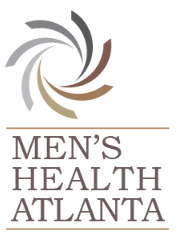
If you have low testosterone, restoring your level can markedly boost your well-being! Testosterone is vital for bone strength, muscle bulk, emotional wellness, mental clarity, and a healthy sex drive. A hormonal shortfall puts men at risk for various medical conditions, such as osteoporosis, heart disease, and diabetes. Insufficiency also makes men prone to fatigue and weight gain.
Normalizing testosterone has study-proven benefits. If testing shows you’re deficient, here’s what you stand to gain from male hormone therapy.
Male Menopause
In men, testosterone starts waning around age 30, by about 1 percent each consecutive year. By age 70, a man’s level can be half its peak measure at age 20. This hormonal decline is known by various terms – low T, androgen deficiency, andropause, hypogonadism, and male menopause.
Roles Of Testosterone
This chemical messenger belongs to a category of male hormones called androgens. Most of a man’s testosterone is made by his testes, the amount regulated by the brain and pituitary gland. The brain advises the pituitary how much hormone to make, and the pituitary tells the testes to produce it.
By understanding the many functions of this compound, you’ll see why it’s crucial for your health. On a physical level, testosterone helps to sustain your muscle strength, bone density, red blood cells, fat distribution, sperm cells, hair, sleep, and sex drive. Emotionally, the hormone enhances well-being. Mentally, it confers alertness.
Low Testosterone Causes
 Testosterone bonds with structures on cells called androgen receptors, which regulate body processes. As testosterone dwindles, the androgen receptors become inactive.
Testosterone bonds with structures on cells called androgen receptors, which regulate body processes. As testosterone dwindles, the androgen receptors become inactive.
Most commonly, a hormone deficiency is due to impaired function of the testes or pituitary gland. Other causes of low T are testicular injury, chemotherapy, radiation therapy, and having undescended testicles during infancy.
Blood testing identifies a testosterone shortage, a level below 300 nanograms per deciliter of blood (ng/dL). A normal amount in adult men is between 300 to 1,100 ng/dL.
ANDROPAUSE SYMPTOMS
A testosterone shortfall saps the enjoyment of life. As you read through this list of possible symptoms, note the ones that sound familiar.
Physical Changes – muscle loss and weakness, sore or swollen pecs, weight gain, hair loss, hot flashes, night sweats, low energy, frequent bone fractures.
Troubling Emotions – lack of motivation, low self-confidence, depression, anxiety, irritability, disinterest in activities that were formerly fun.
Mental Decline – forgetfulness, memory loss, difficulty concentrating.
Poor Sleep – difficulty falling or staying asleep, daytime grogginess.
Sexual Problems – less desire for intimacy, difficulty getting or sustaining an erection, testicle shrinkage, low sperm count, infertility.
OPTIMIZING TESTOSTERONE
The medical intervention that normalizes testosterone levels is called male hormone therapy. Another term is testosterone replacement therapy, abbreviated TRT. Several treatment options are available. A doctor may prescribe TRT in one of the following forms, based on your age, other medical conditions, medication cost, insurance coverage, and your personal preference.
- gel – applied to the shoulder, upper arm, or abdomen once daily
- gum patch – affixed to the upper gum twice daily
- skin patch – placed on the scrotum or other skin region twice a day
- injection – long-lasting, administered every two or three weeks, or every 10 weeks, depending on medication
- pellets – slow-release, implanted every three to six months
TRT BENEFITS
Typically, male hormone therapy promotes the following outcomes.
Energy – With more androgen receptors activated by TRT, men feel invigorated.
Motivation – Testosterone revs the drive to achieve goals.
Morale – Frequently, men report a brighter outlook, more confidence, and greater enthusiasm.
Cognition – Testosterone improves verbal memory, processing speed, and mathematical reasoning.
Bulking Up – Strength training yields better results. Testosterone prompts androgen receptors in muscle tissue to replicate cells. Then, increased muscle mass raises metabolism, burning more calories and fat.
Sex Life – Increasing testosterone stimulates androgen receptors in the brain that control desire, restoring a healthy sex drive. Penile receptors are also roused, helping the penis retain blood to stay erect, reducing erectile dysfunction.
Disease Protection – By increasing bone density, testosterone helps prevent osteoporosis. Blood sugar becomes more balanced, making diabetes less likely. In men with anemia, TRT sparks red blood cell production. TRT also lowers the risk of cardiovascular disease.
CLINICAL STUDIES
Improved Mood
A year-long 2012 study featured in Aging Male evaluated the effect of TRT in 762 testosterone-deficient men taking antidepressant medication. Subjects regularly applied 1 percent testosterone gel. After three months of TRT, the men with moderate to severe depression reported significantly improved mood.
Less Disease Risk
In a 2017 study by Kaiser Permanente, men with low T who received TRT had a 33 percent lower risk of stroke and heart attack than men without TRT.
Testosterone reverses metabolic syndrome. This disorder is characterized by high cholesterol, abnormal triglycerides, high blood sugar, hypertension, and excess belly fat. Metabolic syndrome can lead to diabetes, stroke, and heart disease. A 2013 study cited by the International Journal of Clinical Practice followed 255 men with metabolic syndrome and testosterone deficiency over a five-year period.
The subjects, ages 33 through 69, received a long-acting testosterone injection every three months. Optimizing testosterone slashed the men’s triglycerides, cholesterol, blood glucose, and blood pressure.
Better Sexual and Urinary Health
Men who receive long-term TRT report a more satisfying sex life. Additionally, they tend to have less urinary symptoms related to enlarged prostate, such as frequent urination, weak urinary stream, and waking at night to urinate. These are the findings of a 2017 study presented in the Journal of Urology. The research involved over 650 men with testosterone deficiency, ages 50 through 69.
Greater Well-Being
In 2017, a comprehensive research review confirmed that TRT improves body composition, sexual satisfaction, metabolic function, anemia, bone density, and overall life quality. The study, reported in Sexual Medicine Reviews, examined data from clinical trials, observational studies, registries, and meta-analyses.
AGING EXPERT
With 18 years’ experience, Zack Charkawi, M.D. specializes in family and adult medicine, including medical conditions common to men. As founder of Men’s Health Atlanta, Dr. Charkawi performs male hormone therapy, cosmetic procedures, and reconstructive treatments, such as hair restoration and facial rejuvenation.
When meeting with Dr. Charkawi, his genuine concern and respect will help you feel at ease. Here you can learn more about our doctor’s credentials and his fields of expertise.
BE VITALIZED!
 If you’re showing signs of low testosterone, make an appointment at Men’s Health Atlanta. Dr. Charkawi is committed to helping men feel and look their best. Finding our office is easy, located on Hospital Parkway, near the intersections of Peachtree Parkway (Highway 141) and McGinnis Ferry Road, and directly opposite Emory Johns Creek Hospital.
If you’re showing signs of low testosterone, make an appointment at Men’s Health Atlanta. Dr. Charkawi is committed to helping men feel and look their best. Finding our office is easy, located on Hospital Parkway, near the intersections of Peachtree Parkway (Highway 141) and McGinnis Ferry Road, and directly opposite Emory Johns Creek Hospital.
We serve the counties of North Fulton, Gwinnett, and South Forsyth, and North Atlanta towns, including Duluth, Dawsonville, Alpharetta, Johns Creek, Suwanee, Cumming, and Roswell. To schedule a consultation, call us at (770) 771-6591, Monday-Friday, between 8:30 am and 4:30 pm.
For the past 80 years, male hormone therapy has safely and successfully improved life quality for men with low testosterone. Join the ranks of satisfied guys who are enjoying better health!
Note – The information provided here is solely educational and not meant to replace professional medical advice. For concerns related to male aging, contact Zack Charkawi, M.D. of Men’s Health Atlanta.
© Men’s Health Atlanta. All rights reserved.

